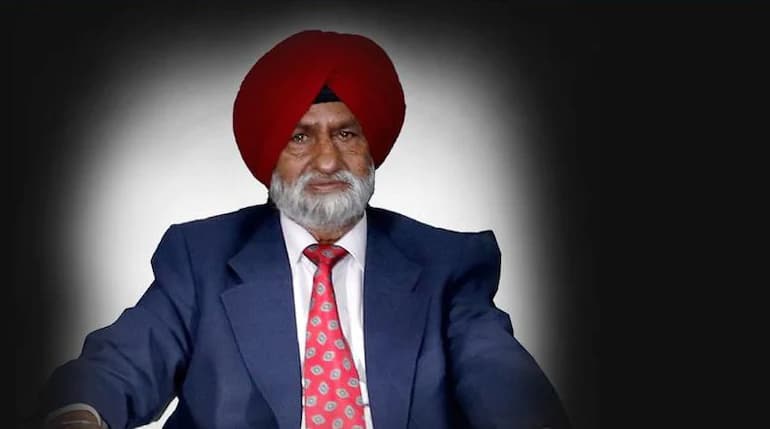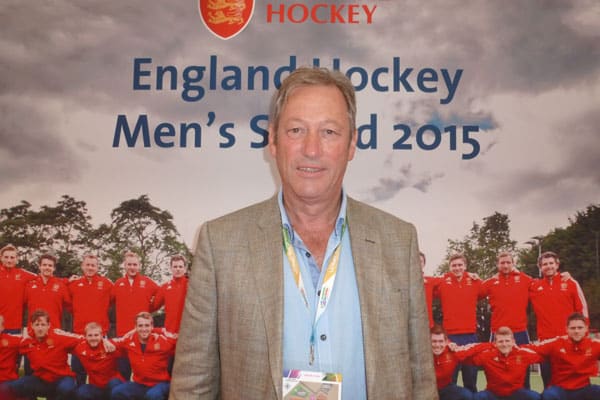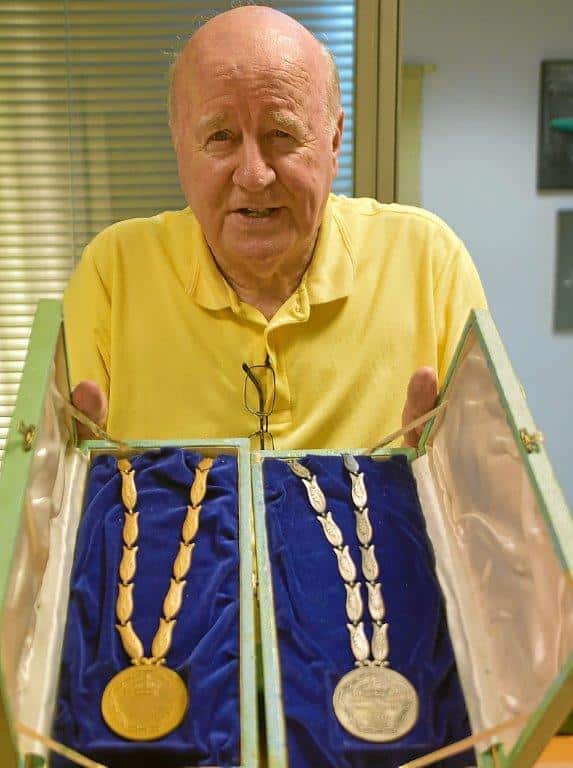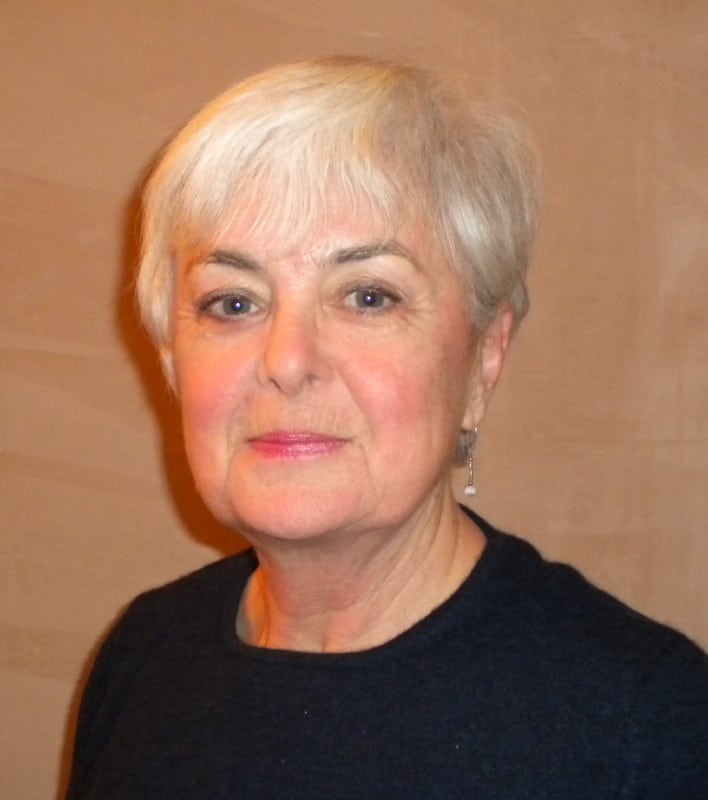A Career Forged in an Era of Flux

16.05.1947 – 28.06.2022
By Nikhilesh Bhattacharya
World hockey lost another link to its rich past when Indian Olympian Varinder Singh died on 28 June 2022. He was 75. Varinder Singh’s international career spanned the 1970s, a decade that witnessed seismic changes in the world game and fluctuating fortunes for India.
His death from a heart ailment at a private hospital in Jalandhar, Punjab came forty-seven years after his crowning moment with the national team, India’s only World Cup triumph in Kuala Lumpur in March 1975. A year later, in Montreal, India returned from the Olympic Games without a medal for the first time as the traditional powerhouses of hockey struggled on the artificial surface to which the sport had shifted in the interim. Varinder Singh, at right half, was an integral part of both the 1975 and 1976 campaigns. He also played in the teams that won a bronze at the 1972 Munich Olympic Games, lost the 1973 World Cup final to the Netherlands in Marbella, Spain and won silver medals at the 1974 and 1978 Asian Games.
Gurbux Singh, who won the Olympic gold in Tokyo in 1964 and a bronze in Mexico City in 1968, was the coach of the national team in Montreal and saw Varinder Singh at close quarters. Despite the team’s failure to win a medal, Varinder Singh’s game impressed Gurbux Singh. “He was calm, quiet and a compact player. He was very intelligent. In his younger days, Varinder played as a forward and that made him a very attacking right half. During my time as coach, I would encourage him to switch places with inside right Ashok Kumar when the latter was being body checked by opposing defenders,” Gurbux Singh told The Hockey Museum (THM).
Ashok Kumar, son to Indian hockey legend Dhyan Chand, revealed to THM that the tactics, in fact, had been first used during the World Cup in 1975. It was forged by a group of players – Varinder Singh, Ashok Kumar, right out V J Philips and left back Surjit Singh – before a crucial league match against Olympic champions West Germany to decide the pool leaders. The idea was for Surjit to take his 16-yard hit and strike the ball across the field to where the inside right would usually be, Ashok Kumar recalled. “I knew I would be marked, so the plan was that I would track back to our own half while Varinder would move into the space thus created and intercept the pass and then try to feed the other forwards. It worked only because Varinder had the experience of playing as a forward and possessed a good turn of speed and excellent ball control”. Varinder Singh’s attacking game set up goalscoring opportunities and India won the match 3-1, topped Pool B and set up a semi-final against hosts Malaysia.
Made in (Independent) India
Varinder Singh, Ashok Kumar and their contemporaries were raised after the Subcontinent gained independence from British rule but was also partitioned into India and Pakistan. Gurbux Singh was a member of the preceding generation that bridged the gap between them and independent India’s first hockey heroes, who learnt the game during colonial times. Having played with and against those who routinely won the Olympic gold from 1948 to 1956 and also their successors who had the unenviable task of trying to replicate the success in the face of myriad challenges, Gurbux Singh enjoys a unique vantage point regarding the history of the game in the Subcontinent and knows a good player when he sees one. Varinder Singh impressed him just as much. “He was soft-spoken, very gentle,” Gurbux Singh said of his fellow Sikh, a religious minority in India who have contributed immensely to the development of hockey in the Subcontinent.
Varinder Singh was born in the village of Dhanowali near Jalandhar on 16 May 1947, mere months before the end of colonial rule. Punjab had long been the cradle of hockey in the region and Varinder Singh evidently picked up the game at a young age. Ajit Pal Singh, the captain of the 1975 World Cup team and Varinder Singh’s regular roommate during their time in the national team, remembered coming up against the latter in inter-school tournaments. “We also went together to the Lyallpur Khalsa College in Jalandhar,” Ajit Pal Singh told the Hindustan Times newspaper after Varinder Singh’s death.
Despite the early start, it took Varinder Singh time to break into the national team. “Compared to the rest of his teammates in Munich [Olympic Games 1972], Varinder was a late-bloomer, coming into the Indian side when he was 26 while most of the others were in their early 20s and already had international experience,” K Arumugam writes in Profiles of Indian Hockey Olympians.1 “However, he lost no time in making up for the lost time and since his debut, was rarely left out of the Indian squad till he quit playing [after the 1980 pre-Olympics].”
The 1970s saw the continuation of India’s rivalry with Pakistan. Two countries joined at birth and drawing on the same colonial legacy fought to carve out their separate identities. Pakistan had the better of the decade, winning the inaugural World Cup in Barcelona in 1971 and the fourth edition in Buenos Aires in 1978 as well as gold medals in the Asian Games in 1970, 1974 and 1978. Varinder was part of the India teams that lost to Pakistan in the last two of those finals.
The beginning of the end
However, the world order changed decisively in 1976, following hockey’s shift from grass to artificial turf. Not just India and Pakistan, but some of the other traditionally strong teams like the Netherlands and West Germany also struggled to adapt in Montreal, Gurbux Singh recalled. “You must remember, there was not even a patch of Astroturf in India at the time. The first time the team got to play on an artificial surface was in France at a pre-Olympics tournament,” Gurbux Singh recalled. A “topsy turvy” Olympic Games was finally won by New Zealand (the country’s only ever medal in Olympic men’s hockey) as India finished seventh. The fact that Varinder Singh continued to play for the national team for four more years, however, was testament to his adaptability and tenacity.
Since 1976, India’s only Olympic medals have been a gold at the largely boycotted Moscow Games in 1980 and, after a 41-year wait, a bronze in Tokyo last year. They have never won the World Cup again.
Varinder Singh was an officer in the Northern Railways. He played for his employers as well as the combined Indian Railways team in the domestic circuit. After his retirement from the railways, he took up a job with the Punjab Sports Department. As decorated hockey players from India’s golden generations, Gurbux Singh and Varinder Singh would often cross paths. “I sometimes met him in Jalandhar, where he was looking after the youngsters,” Gurbux Singh said. They were also Facebook friends, and more recently kept in touch with each other over the social media platform.
The Indian government honoured Varinder Singh with the Dhyan Chand Award for Lifetime Achievement in Sports and Games in 2007.
Varinder Singh is survived by wife Manjit Kaur and sons Gurpreet Singh and Harpreet Singh.
Varinder Singh, hockey Olympian, World Cup winner, administrator; born 16 May 1947; died 28 June 2022.
1 K Arumugam, Profiles of India’s Hockey Olympians (New Delhi: Field Hockey Publications, 2012), 160.








